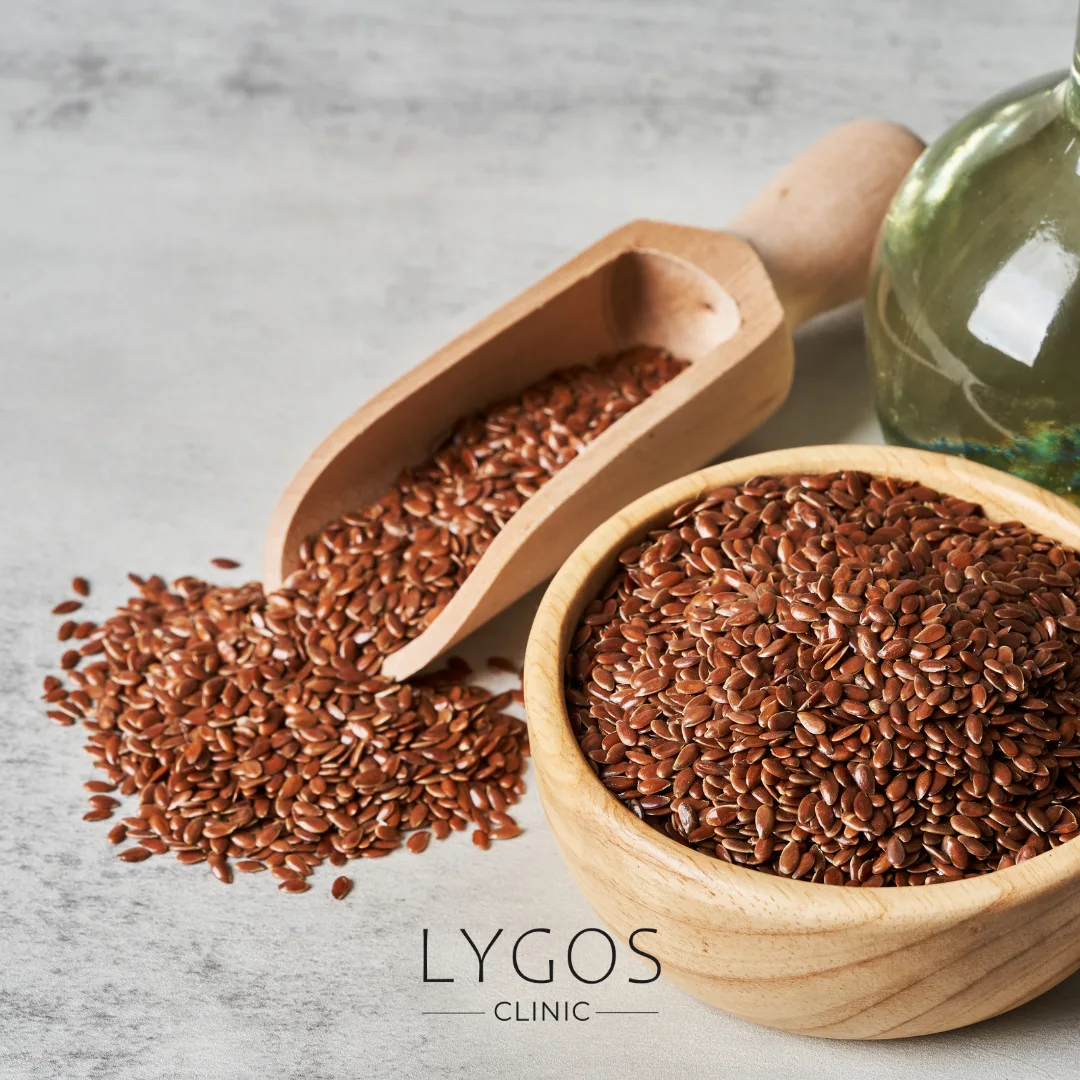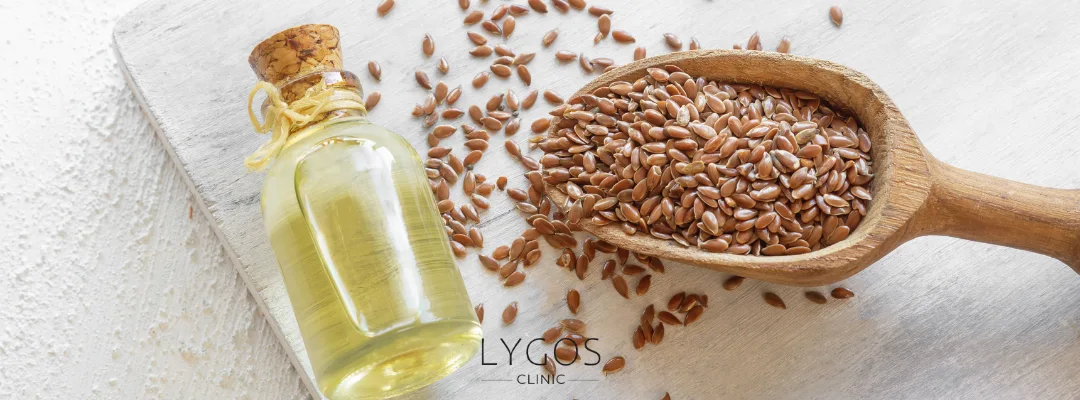What Are the Benefits of Flaxseed?

Chose Your Topic
What Are the Benefits of Flaxseed?
Flaxseed has become a popular natural food source in recent years due to its numerous health benefits. These small, brownish seeds are packed with high nutritional value and offer various advantages for the body. So, what is flaxseed, how is it used, and what are the benefits of flaxseed? In this article, you will find important information about the benefits of flaxseed and how to consume it.

What is Flaxseed?
Flaxseed comes from the flax plant, a yearly plant that grows about 30 cm tall and produces blue flowers. This plant has been used for thousands of years, dating back to around 3000 BC, and has played an important role in traditional Chinese and Egyptian medicine. Flaxseed is widely used in both health and cosmetic products. Thanks to its rich content, flaxseed plays an important role in promoting digestive health, heart health, and many other areas of wellness.
Benefits of Flaxseed
- Supports Digestive Health: The benefits of flaxseed are particularly evident in the digestive system. Rich in fiber, flaxseed helps regulate the digestive system and can prevent issues such as constipation. Additionally, flaxseed contributes to balancing the gut flora.
- Protects Heart Health :Flaxseed is also beneficial for heart health. The omega-3 fatty acids in flaxseed help reduce bad cholesterol (LDL) and increase good cholesterol (HDL). Regular consumption of flaxseed can help reduce the risk of heart attacks and strokes.
- Fights Cancer :Flaxseed has anti-cancer properties, thanks to the lignans it contains. These powerful antioxidants may help prevent the growth of cancer cells. It is particularly thought to have beneficial effects on breast, prostate, and colon cancers.
- Supports Skin Health : Flaxseed is also beneficial for skin health. It helps reduce inflammation and maintain skin hydration. Additionally, flaxseed may help reduce wrinkles. Flaxseed oil is commonly used to alleviate dry skin and conditions like eczema.
- Regulates Hormonal Balance: Flaxseed helps balance hormones, particularly by providing phytoestrogens—plant-based compounds that help balance estrogen levels in the body. This can be particularly beneficial for women going through menopause.
Benefits of Flaxseed Oil
Flaxseed oil is obtained by cold-pressing flaxseeds. This oil is rich in omega-3 fatty acids and antioxidants. Here are some benefits of flaxseed oil:
- Supports Heart Health: The benefits of flaxseed also extend to flaxseed oil. Rich in omega-3 fatty acids, flaxseed oil helps protect cardiovascular health and regulate blood pressure. Regular use can reduce the risk of cardiovascular diseases.
- Has Anti-inflammatory Properties: Flaxseed oil contains components that help reduce inflammation. It may be useful in the treatment of inflammatory diseases like arthritis and rheumatism.
- Improves Skin Health: The benefits of flaxseed oil for the skin are evident as well. It has moisturizing effects and is commonly used in anti-aging skin care products. It can also help reduce wrinkles.
- Supports Digestion: Flaxseed oil also has digestion-improving properties. When consumed regularly, it can have a soothing effect on the digestive system and help prevent issues like constipation.

How to Use Flaxseed
Flaxseed can be used in various ways. Fresh flaxseeds can be ground or used whole in various recipes. Flaxseed oil is also commonly used in salads and smoothies. Here are some ways to incorporate flaxseed into your diet:
- Ground Flaxseed: Grinding flaxseed allows the body to absorb its nutrients more effectively. Ground flaxseed can be mixed into yogurt or cereal at breakfast. Consuming it this way allows for quicker absorption of its benefits.
- Flaxseed Oil :Flaxseed oil can be used in salads, dressings, or smoothies. It can also be used in cooking, but it is recommended to use it in low-heat recipes as high temperatures can reduce its nutritional value.
How to Consume Flaxseed
There are several ways to consume flaxseed, and the benefits of flaxseed are most evident when consumed correctly:
- Using in Breakfast: Ground flaxseed can be added to yogurt, oatmeal, or smoothies. It can also be used in healthy bread recipes. Consuming flaxseed at breakfast may make its benefits more effective.
- In Salads and Dressings : Flaxseed oil can be added to salads as an alternative to olive oil. It can also be used in various dishes as a dressing. This is another way to provide your body with the benefits of flaxseed.
- As a Snack :Flaxseed can be used in making healthy snacks. For example, roasted flaxseeds can be a great option for a healthy snack. This is also a good choice in terms of the benefits of flaxseed.

Possible Side Effects of Flaxseed
While flaxseed is generally considered safe and beneficial, excessive consumption can cause some side effects. Despite the many benefits of flaxseed, here are some potential risks of overconsumption:
- Diarrhea and Digestive Problems :The benefits of flaxseed are best achieved when consumed in moderate amounts. Overconsumption can lead to digestive issues such as diarrhea or bloating. It is recommended to consume no more than 1-2 tablespoons of flaxseed per day.
- Risk of Bleeding: Flaxseed contains compounds that inhibit blood clotting. Therefore, individuals taking blood-thinning medications should consult with a doctor before consuming flaxseed.
- Hormonal Imbalances: Since flaxseed contains phytoestrogens, people with hormone-sensitive conditions, such as breast cancer, should be cautious. It's important for individuals with hormone-sensitive cancers to consult a healthcare professional before using flaxseed.
Despite its many health benefits, flaxseed should be consumed in moderation. When included in a balanced diet, flaxseed can contribute to better health and provide valuable benefits for the body.
Benefits of Flaxseed Frequently Asked Questions (FAQ)
Flaxseed comes from the flax plant and is rich in nutrients, offering numerous health benefits. These small, brownish seeds are packed with omega-3 fatty acids, fiber, and antioxidants, making them a popular choice for overall health.
Flaxseed contains a high amount of fiber, which helps regulate the digestive system and prevent constipation. It also supports a healthy gut flora, promoting better digestion and nutrient absorption.
Yes, flaxseed is known to support heart health. The omega-3 fatty acids in flaxseed help lower bad cholesterol (LDL) while raising good cholesterol (HDL), and they may reduce the risk of heart disease and stroke.
Flaxseed contains lignans, powerful antioxidants that may help inhibit the growth of cancer cells, especially in breast, prostate, and colon cancers.
Flaxseed helps reduce inflammation and maintain skin hydration. Flaxseed oil is commonly used to treat dry skin conditions like eczema and may help reduce wrinkles.


